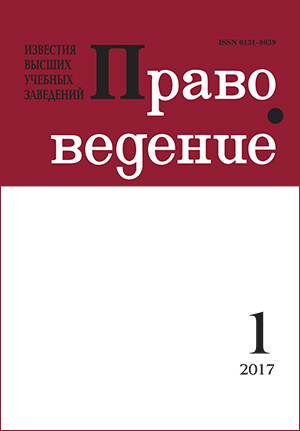Spam jurisprudence, air law, and the rank anxiety of nothing happening
Abstract
The article critically analyzes the current state of American legal science. At the beginning of his discussions the author describes the scene from the movie “The Endless Summer” (1966). It was this scene that became the starting point for further author’s discussions on modern American legal science. It was a movie about two surfers who traveled the world in search of the perfect wave. As they arrived on the scene of yet another dispiritingly becalmed ocean, every time the locals sais, “You missed it. You should’ve been here yesterday”. From the author’s point of view this pretty well describes the state of contemporary legal scholarship: It’s almost totally becalmed. Worry about ratings has become the prevailing epistemological principle in US law faculties at the beginning of the 21st century. It was at this point that deep uncertainty about the goals and objectives of higher education (together with its intensive transformation into a corporation) led to widely publicized attempts to measure individual and institutional contributions to the legal science by referring to various rating schemes. Everyone condemned the ratings and everyone followed them. The author concludes that “spam jurisprudence” and anxiety about ratings are interrelated phenomena. Between them there is a feedback effect. Asked by the question “can the things be different?”, the author analyzes various aspects of modern American academic jurisprudence. At the end of the article the author comes to the conclusion that the dark sides of modern legal science — the administrators who want to enhance the reps of their schools, mediocrity, the rankings, the status insecurities of young faculty members — are likely to make the situation worse.
Keywords:
Legal theory, jurisprudence, legal education, culture, aesthetics, CLS, law and society, ratings, spam jurisprudence
Downloads
References
Downloads
Published
How to Cite
Issue
Section
License
Articles of "Pravovedenie" are open access distributed under the terms of the License Agreement with Saint Petersburg State University, which permits to the authors unrestricted distribution and self-archiving free of charge.




